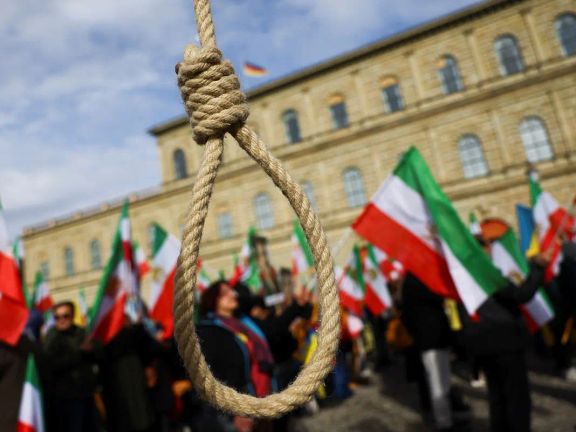Iran's executes at least 300 in first half of 2024 with 49 in July alone

At least 300 people were executed in Iran in the first seven months of 2024 following a record number of killings in 2023.

At least 300 people were executed in Iran in the first seven months of 2024 following a record number of killings in 2023.
A significant increase in executions was noted in July, with 49 people executed, according to a new report by Norway-based Iran Human Rights Organization (IHRNGO) on Saturday.
Thirty-six people were executed in just the last 11 days of the month.
The surge follows a period of relative decline after the death of President Raisi and the presidential elections from May 19 to July 5.
The organization's 15-year statistical analysis shows a consistent decline in executions in the weeks leading up to elections, believed to be a tactic to boost voter turnout.
Mahmood Amiry-Moghaddam, the director of IHRNGO, expressed grave concern over a new wave of executions targeting activists from Iran’s ethnic minority communities and prisoners sentenced to death on drug-related offenses.
"We are particularly worried about the new wave of executions of Kurdish civil activists and drug death row prisoners in the coming weeks and months," Amiry-Moghaddam said.
Five of the 300 executed this year were accused of spying for Israel, and five were Kurdish-Sunni political prisoners.
Of those executed on espionage charges this year with links to Israel as alleged by Iran’s judiciary this year included Pejman Fatehi, Mohsen Mazloum, Mohammad (Hazhir) Faramarzi and Wafa Azarbar, who were executed in Ghezel Hesar Prison in Karaj, west of Tehran in January.
Their execution caused widespread global condemnation with rights groups arguing their execution was based on confessions obtained under torture and without a fair trial.
Out of the total executions in Iran so far this year, 20.67 percent were from ethnic minorities, with 14 percent being Baluch (42 individuals) and 6.67 percent Kurdish (20 individuals). Additionally, 6.67 percent of the executed were Afghan nationals (20 individuals).
The report highlights that 172 of these executions were for drug-related offenses. At least 15 women were executed with ten hanged for drug-related offences.
Executions for drug-related charges have risen annually since 2021, though there was a 20 percent decrease in the first seven months of 2024 compared to the same period last year.
According to Amnesty International, Iran carried out 853 executions in 2023, marking the highest number in eight years. Amnesty International noted that 64 percent of the executions in 2023 were for crimes that did not warrant the death penalty under international law, including drug-related offences, robbery, and espionage.